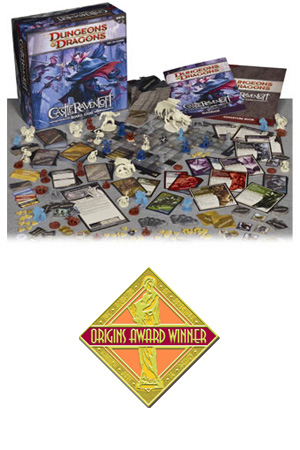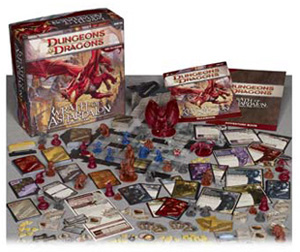I think it depends on whether your family members have the interest and attention span required. Neither of my parents would play an RPG, but my brother would. I think there are several important factors for this - especially if you don't want to ruin your holidays!
- It's got to be a fast game. You have to have a short, simple scenario ready to go.
- You have to tailor it to your family. What will captivate them? Puzzles? Fights? Negotiations? A known property that they can relate to might make things easier.
- I think a simple ruleset is probably in order. You've got what - A day? A weekend? You can't expect them to absorb everything you've spent years learning in that span.
So with those factors in mind, I think you might find one of these games a good fit:
Primetime Adventures. PtA is the game of making the best TV series that never was. It uses a simple deck-of-cards mechanic, is very character oriented, and can be adapted to a wide variety of genres. I think if you can come up with a few series pitches, you can play it all in one day. And you'll have fun putting your series together no matter what!
Leverage. This is one of those "known property" games I was talking about. It is licensed from the TV show of the same name, where a bunch of thieves and criminals and con-men band together to help people. Yeah, I know. Just think of it as a caper movie every week. The system is designed to represent these hyper-competent folks - every member of a crew is among the best in the world at his or her specialty. There's no PC death and it allows you to replace, "Darn! I wish we had thought of that before!" with a flashback showing how your super-smooth crew did think of it before. If your family likes this show, I would recommend trying this game out. Similar recommendations may apply to other licensed games, but Leverage is the best example I could come up with, due to the combination of simple system, mainstream property, and story emphasis.
Savage Worlds. Savage Worlds is another die-size-for-rating like the Leverage game where a d8 in Strength is better than a d6, etc.. But SW is a much more conventional multi-genre RPG. I don't know if the $10 Explorer's Edition book is still available, but it's one of the best deals there ever was in gaming. With the core book and a little creativity, not to mention the fan-created resources on the net, you can be ready to go in whatever genre piques your family's interest in just a couple of hours. Something like "Great! So, we all want to play in a Mad-Max sort of wasteland where the apocalypse was magical instead of nuclear. I'll get some stuff ready while you make gravy...". There are also a large number of freely downloadable one-sheet adventures, along with a free set of test-drive rules, which allow you to try the system without spending any money up front.
Gamma World. I actually just thought of this after writing up the Savage Worlds entry. But my awesome wife just bought me this cool game, and I think it would be a good fit, provided your family can dig the wacky setting. It looks like character creation is very fast. And there are lots of online character generators!
Good luck, happy holidays, and I hope it works out great!
Update - Dungeon World
With the system discontinued and the setting abandoned, I can no longer really recommend Gamma World. This does not change how awesome my wife is.
However, my most recent experiences with bringing neophyte gamers into the fold have been with Dungeon World and they have been remarkably successful. By adhering to what are now well-known fantasy genre tropes, Dungeon World makes itself easy to explain - everyone knows what elves and dwarves are, and even rangers and wizards, thanks to The Lord of the Rings movies.
Character creation is fast and simple - a menu-driven experience of making a few choices. Like most Apocalypse World-derived games, the character sheets themselves contain most of the instructions for character creation and the class-specific rules for each character.
The game itself is fast and highly participatory. This means players get to keep taking actions, making decisions, and seeing those actions and decisions feed back into the game.
I have run several Dungeon World games after work for new players, and have always had character creation and a satisfying chunk of dungeon adventure in just a few hours.


